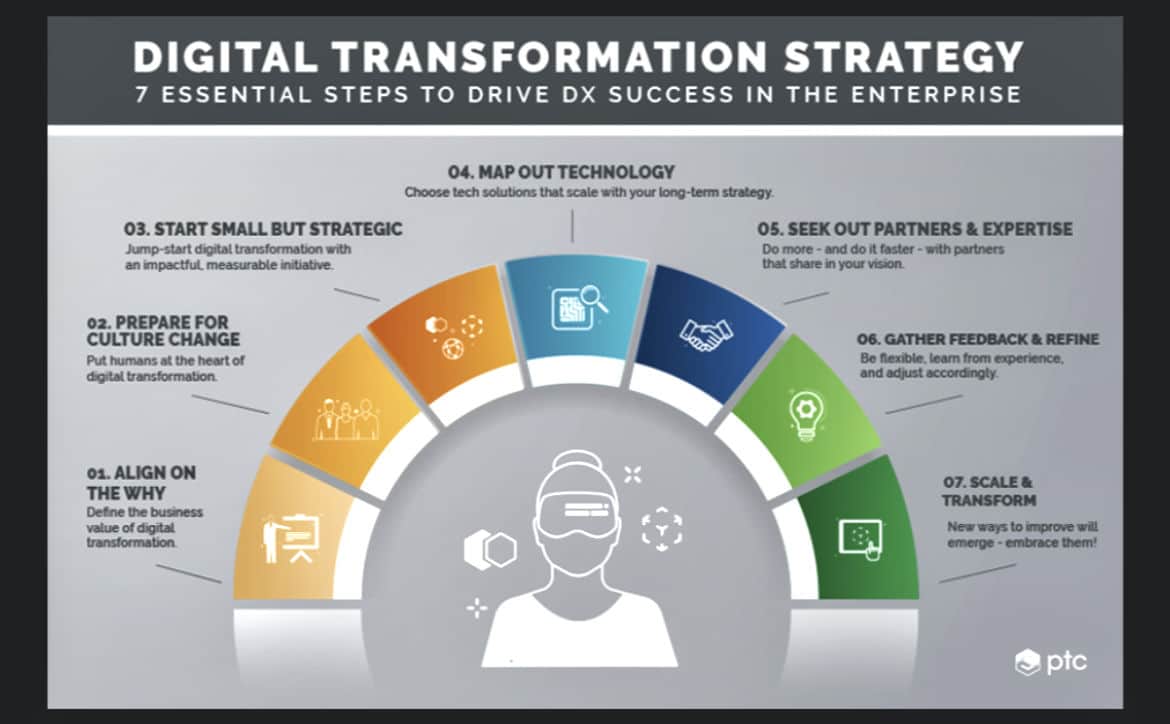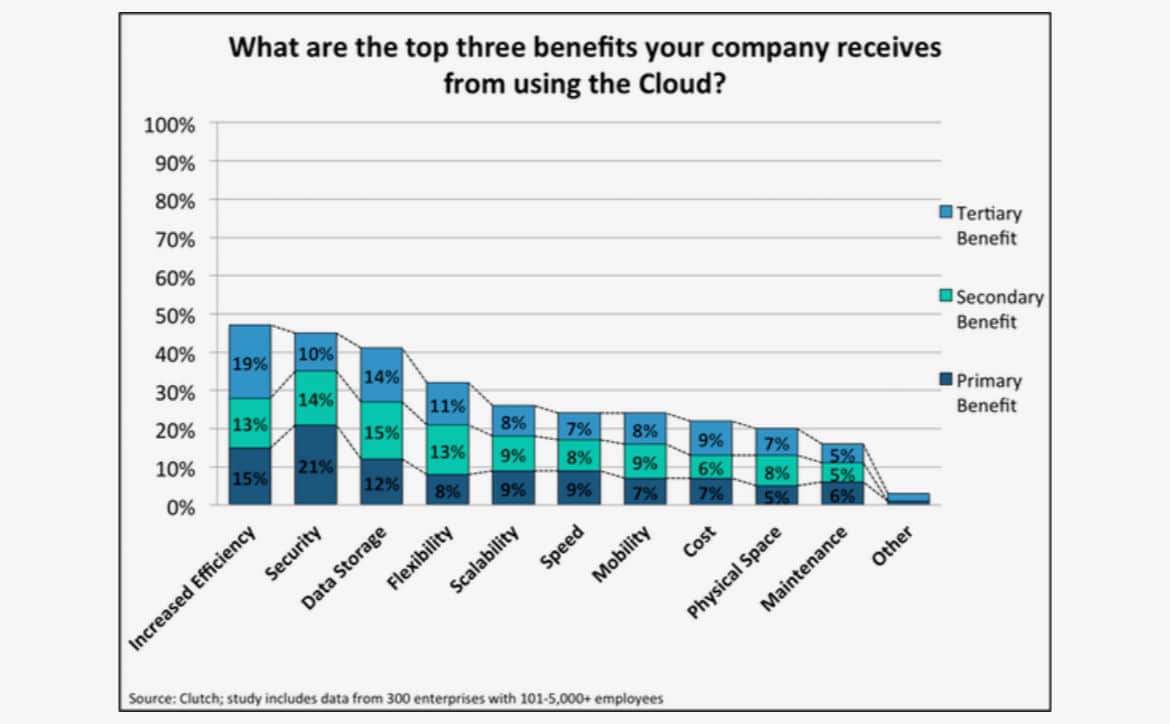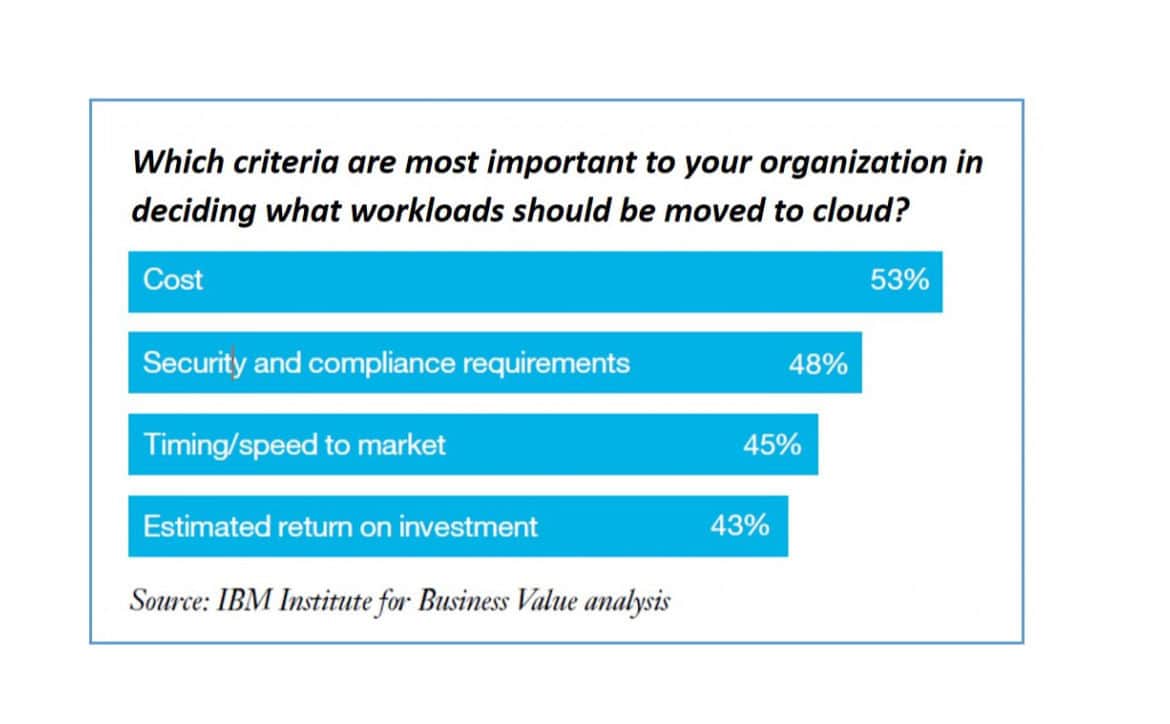A few decades ago, tech innovations like artificial intelligence, cloud computing, and machine learning were more fiction than reality. Today, that tech is a reality, and it’s disrupting the way we do business. Therefore, any company looking to stay relevant in a highly competitive marketplace must undergo a digital transformation, revamping existing practices to incorporate the new tech.
And it’s near impossible to undergo this transformation without relying on cloud technology.
That’s why a recent report from Gartner expects cloud solutions to account for up to 45% of global IT spending by 2024.
Cloud computing is fundamental because it provides businesses with cost-effective access to technologies like chatbots, machine learning, and data analytics. Enterprises can leverage these technologies for improved operational output, production, and profitability.
Ways the Cloud Boosts Digital Transformation for Businesses
Cloud computing describes technology using multiple servers and infrastructure via a dedicated network. These servers provide various functionalities, including security, storage, analytics, and data processing.
Here’s how leveraging cloud computing can drive the digital transformation process for your company.
Increased Security
Embracing the shift to digital comes with the responsibility of handling large data sets and infrastructure. Unfortunately, managing big data is easier said than done and comes with a prevalent threat — data breaches and hacks.
But companies can completely prevent huge information loss, hacks, or unauthorized access by leveraging cloud computing and transferring data to the cloud. This eventuality is possible because cloud service providers use the latest protection measures to secure data applications, networks, and general infrastructure.

Cost-Effective
Sure, digital transformation is a necessity for companies looking to survive in today’s market. But the shift to digital must happen in a manner that does not endanger the company’s profitability.
Any company is at risk if its business operation costs suddenly increase radically. That’s why companies must leverage cloud computing functionalities to reduce operational costs.
Cloud computing reduces business spending on hardware and software purchases. It also eliminates the need for expensive data centers. Alongside paying for cloud warehouse and storage services eliminates space, cooling, electricity, staff, and server maintenance expenditures.
The upfront cost of shifting from traditional to cloud can be high. But over time, the return on investment will justify the initial capital. Organization-wide digital transformation is simpler when you no longer have to devote company resources and time to install operational infrastructure. And cloud technology also offers cost advantages like extended product cycles and time savings.
Finally, cloud computing uses a “pay-as-you-go” model that favors the company’s balance books. Pay-as-you-go means you’ll no longer be spending money on resources that have not been consumed. For example, say your contact center only needs VoIP caller tech. Cloud computing offers the flexibility to only pay for VoIP call features crucial for organizational work.
These benefits combine to provide a new level of time-cash efficiency that makes cloud computing a core component of any digital transformation strategy.
Improved Efficiency
The cost-effective nature of cloud computing is not a substitute for efficiency. Instead, including cloud computing in your digital transformation strategies maximizes company efficiency.
Cloud computing delivers access to the latest tech and infrastructure, all of which are optimized for efficient performance. Suddenly, small to medium-sized enterprises have access to next-level tech solutions they would otherwise be unable to afford.
Cloud computing is so efficient that it helps organizations protect against disasters like data loss. Cloud infrastructure is home to large data backups that assists with recovering from ransomware and retrieving lost data. This distinct feature saves productive time otherwise lost to technical mistakes, server lags, and system resets.

Flexibility
The beauty of cloud computing is you never have to procure resources that you would otherwise not need. Whether yours is a large or small organization, cloud computing can provide the exact amount of resources, computing power, and bandwidth necessary per time.
No longer will you have to buy expensive hardware only to harness a fraction of its functionality. Plus, your cloud computing needs can scale alongside company growth. You can always reduce or increase resources to support digital transformation on demand.
Total Authority
Today’s strict data compliance and protection laws have dire implications for companies that run afoul. Therefore, enterprises must take extra measures to prevent data losses, task lags, and operational issues that can cause compliance issues.
Cloud computing offers solutions by granting businesses unfettered, all-around control of digital transformation processes. For example, cloud innovation tech delivers an elevated view of big data, allowing organizations to track and modify data availability and deployment at will.
Another illustration is how cloud computing gives companies increased workflow control, and unique employee access to individual duties. This improved workflow control leads to streamlined business processes, task execution and deliverable management while preventing unauthorized access.
Cloud Computing Is Agile
Digital transformation is new ground for many organizations. As such, it can be challenging to ascertain the precise level of resources necessary to maintain operational efficiency at any point in time. While there’s an experimental side to executing digital transformation strategies, things become dicey when client demands come into the picture.
With in-house IT centers, organizations may find it difficult to pivot their processes to fit client demands. Unfortunately, this difficulty often translates to slower turnaround times and poor output. On the other hand, cloud computing infrastructure is flexible, allowing enterprises to effect late client-related changes without any operative decline.
The above is a clear picture of cloud computing agility. It’s a characteristic that encourages digital transformation processes since there’s no reason to agonize over business changes and the effect on IT infrastructure.

Automatic Updates
Here’s a quick mental picture for you. First, you’re working on a significant task using quote management software. Then, suddenly, you get a notification on the screen — “urgent software update.” Few things hamper organizational productivity, like mandatory updates during an ongoing task.
Suddenly, your team has to pause for the cause while spending time updating the system manually. By switching to a cloud system, you can avoid this downtime and ensure uninterrupted processes. Cloud computing comes with automated cyclic updates that can save your team much-needed time and resources.
Speed
Relying on cloud computing can help your company achieve speedy digital transformation processes. Primarily, your team gets access to cloud services immediately after making the necessary payments.
For example, your contact center doesn’t have to ask what SIP calling is or figure out how to set up complicated hardware. Instead, they can start making calls over the internet immediately after payment.
You can start enjoying the functionalities of digital transformation processes on the spot without having to learn or install complicated systems. And to cap it off, cloud applications are fast and efficient by default.
Cloud Computing Is Key to Digital Transformation
With advantages like speed, flexibility, and cost-effectiveness, cloud computing can hugely influence any digital transformation strategy. Leverage these influences, tweaking them to get the best from your digital processes.
Author Bio
John Allen – Director, SEO, 8×8
John Allen is a driven marketing professional with over 14 years of experience, an extensive background in building and optimizing digital marketing programs across CPaaS companies, SEM, SEO, paid media, mobile, social, and email, with an eye to new customer acquisition and increasing revenue. John has also written content for ZoomShift and Shift4Shop.
What do you think? Please share your thoughts on any of the social media pages listed below. You can also comment on our MeWe page by joining the MeWe social network.










